As part of our censorship series, I talked with the Soskas about their Twitter ban, their thoughts on censoring art, and why we should all pay attention.
After my previous piece, Silencing the Soskas, was published, Twisted Twins Jen and Sylvia Soska re-obtained access to their Twitter handle @twisted_twins. We are pleased to report that, this time, the account seems to be permanently off lockdown. It is certainly a win for both free speech and the horror community – especially independent artists without major studio backing like the Soskas.
But it still begs the question: what can we learn from this experience?
Censorship, we’ve proven, is still alive and well. It casts a menacing shadow that threatens the livelihood of the artists who already have an uphill battle to get their content seen by wider audiences. What’s more, it also affects the consumers who are always rabid in their quests for new, original content — especially within the horror genre.
Big studios have their finger on the pulse of many major franchises that rake in beaucoup bucks at the Box Office. But it is through the independent lens, in my opinion, where the truly original horror shines and provides not only nail-biting thrills, but the richness of artisanal cinema. These aren’t just people looking for a payday. And that’s not to say the others with studio backing are in it just for the check.
But independent artists are the heartbeat of genre cinema and have been for a long time.
Ever since horror was little more than the black sheep of the cinematic family, a dirty word uttered in hushed whispers, we’ve been given content by creators who want to tell us a story. If censorship continues to prevail, we may not only lose the magic that comes from the merit held by good storytellers, but we may lose what makes horror truly great entirely.
I had the privilege to interview the Soska sisters about this issue directly. We discuss censorship, their Twitter ban (in as much detail as they can disclose), Cronenberg and how his work – and theirs – are somewhat commonly banned, and how the media is controlling what we experience and see as consumers.
INTERVIEW WITH JEN AND SYLVIA SOSKA
1. Has the Twitter ban been permanently lifted as far as you can tell? Was there ever a definitive reason for the ban that you can share?
Sylvia: We never got to directly speak to a person, which I think could have resolved this issue a lot faster. Rabid is still an independent horror film, even though it cost millions of dollars and even had Telefilm supporting it. But being taken off Twitter the day that the trailer and World Premiere were announced was a blow to the beginning of promotion for the film. We have legal talking to their legal, so we can’t go into detail. But we can say that online harassment is a very serious issue. If people don’t like other people, they can manipulate the servers’ flagging protection privacy for harassment.
Jen: The say it was our FrightFest banner, but I don’t think it would have happened if this was a Blumhouse or studio film. The very next day after we got kicked off again for inappropriate content for posting our 20th Anniversary FrightFest banner displaying Rabid among other films, IT: Chapter 2 had a featured Twitter story hailing the “gruesome new trailer”. That’s a big double standard. The images on our banner were MPAA approved and have even appeared on the cover of two magazines. Content that is inappropriate does not make it on the covers of magazines. This is a pretty obvious case of silencing the “little guy” competition while big studios get freedom to shove their content down everyone’s throats.
2. Have you ever experienced this kind of censorship before, or any censorship surrounding your films in general?
S: Dead Hooker in a Trunk was extremely difficult to get out. It was our first film and pre-the women in horror movement. We had film festivals take our submission fees while telling us they didn’t watch the film because the title alone made it inappropriate to screen. Later, the film was banned in Saskatoon. The theatre went on to ban more horror film screenings rather than admit they made a mistake. The film is a dark satire about the lack of compassion during the Pikton murders. It would be insane to make a film with that title and not be prepared to talk about it. Our segment, “T is for Torture Porn”, in The ABCs of Death sequel was banned in Germany. I believe American Mary has also been censored in Germany and a few other countries.
J: Sadly, yes. We always seem to rouse up some controversy, but rarely for a reasonable cause. American Mary was censored or just straight up not released in some places because they said we were encouraging a degenerate lifestyle with normalizing the body modification community. It’s so very much like censorship, in this case, as cosmetic surgery (big studio) is seen as normal and totally acceptable — whereas body modification (indie art) is vilified because it doesn’t fit into the dominant narrative of the planet. It was very important for us in that film for people to gain some empathy for a group they don’t really know but seem to have a lot of opinions about.
3. Why do you think independent artists are being censored by social media?
S: You have to look at the evolution of media. The newspaper and the radio were how the information that was supposed to be fed to the masses was processed. Then, ‘programming’ came from televisions and films. Those mediums were able to run free with artistic expression and political discourse for decades, while a few companies quietly grew into Goliaths in the background. Then the internet and social media moved programming even more attached to the audience. Now people wake up to a message, consume messages all day to program how they are meant to think, and they go to sleep with those same messages.
Independent video stores are disappearing. You can only easily find major studio blockbusters which have very safe messages for the masses. Films like The Human Centipede, The Devils and Altered States, anything by David Cronenberg, anything by David Lynch — they all have messages that aren’t cookie cutter fed to you. They force you to think and question. And a thinking & questioning populace cannot be controlled through the same programming.
Bigger business is doing to social media what it did to our video stores, that it did to our television programming. They’re giving the public less options and killing the competition. They don’t want people to get funny ideas. Funny ideas make the working class realize we are all in this together, and we should listen to our own needs — not what people want us to get riled up about.
J: There are only about 6 companies that control all the media that comes out. In 1983, there were about 50 companies. Do you see what I mean? There is so much more control over what we can or cannot watch in the media because it’s the way these companies control us. They tell us who to love, who to hate, what to be angry about, what to normalize, and, most importantly, what to buy.
Joseph Stalin said, “Ideas are more powerful than guns. We would not let our enemies have guns. Why should we let them have ideas?”
We don’t read like we used to. We don’t get our information from numerous sources with vast, diverse experiences. We live in a world of the illusion of choice. Most choices are really A or B. And the same place owns A and B, so they just really don’t want you to think about C or D.
I think it’s a matter of control. It’s easier now to silence anyone than ever. You just shut them off social media and claim it’s a matter of censorship (which runs without any clear rules), and that’s that. They’re afraid of indie voices. And they’re even more afraid of what happens when people start to listen and think instead of consuming what’s being force fed as our own opinions.
4. Why do you think it’s so important that media remains unbiased and independent filmmakers and content creators are able to promote their content to consumers and fans without so many strict guidelines?
S: When art becomes an elitist activity, it stops being art at all. There are a lot of people who sold their souls, their ethics and morality, to get to play in the big leagues with people like Harvey Weinstein, Bryan Singer, you name it. There are so many predators being outed from big companies that people seem to have become numb to it. The amount of people in positions of power who abused that power so that they could abuse men & women, even children, is beyond sickening.
I think the companies who allowed this behavior to go unchecked for so long because it affected the poor and powerless are terrified of what the future holds. That’s why you see them acting like the Catholic Church. It would be nice to see all the predators and pedophiles get justice so that the community can heal. But it costs money, and hiding it keeps them in the green.
It’s only natural for there to be an artistic opposition to the ruling class’s art. Art belongs to everyone, we cannot do nothing when some of us our being censored. It is up to the artist and the audience whether the individual wants to have this experience. Once we start getting told what we can and cannot see, it’s only a matter of time before anything that promotes critical thought is forbidden.
J: There is so little journalistic integrity or integrity in general left in the media. It’s either this side or that side, and they’re both screaming like maniacs. The scariest thing is there is encouragement to scream down your opponent or “punch a Nazi”. Who are we calling Nazis? And does calling someone a name make any actions taken against them justified because you have righteousness on your side?
Our leaders are encouraging us to fight amongst ourselves. And what’s worse is, we’re being encouraged to attack those with differing points of view rather than discussing and understanding where they got these notions so we can begin to find some common ground. What leaders would not want us talking? Because they’re afraid of the people joining together. If indie artists can be silenced, get ready for anyone being able to be silenced. We started by silencing anyone we dubbed a “bad guy”. But don’t we need to talk to those people the most? If this trend continues, only those with pre-approved corporate messages will be the only ones allowed to say anything.
They’ve already started to single out horror. And most people drawn to horror are survivors, not monsters. It’s just another dangerous generalization of an entire group of people.
5. In my first article, I discussed how Netflix, in particular, is going to ban smoking from their original programming and how it removed other content from existing media under their control. Do you think this is a good thing? Do you think programs that might have a younger audience should undergo stricter guidelines so as not to potentially negatively influence younger audiences? If no, why not?
S: I used to believe that what we ingested artistically had no effect on us, but it does. You see something enough, and it affects you. My grandmother died from smoking related illnesses, so I’m not a fan of smoking. But I also find Netflix extremely hypocritical. They say no smoking in our shows. But they have a show coming called Slutty Teenage Bounty Hunters, with one actress who is 14 and one who is in her 20s playing underage twin sisters who are slutty.
As twins that survived the countdown to fuck the Olsen Twins era in our lifetime, I cannot tell you how damaging the sexualization of children, especially twins, has negatively affected my life. Those are the concerns that the network should be thinking about.
Normalizing pedophilia is a huge problem in Hollywood. It’s so normalized that when you point it out, people get embarrassed to admit they fell for pedophile marketing.
We need to talk to young people about grooming, especially with the content we see in the media. Watch for all the older men being cast with romantic interests young enough to be their daughters. It’s sick. Once you notice the pattern, there’s a lot of media that just turns your stomach.
J: I have a big problem with the sexualization of the children on Stranger Things, as well as the fact they were around smoking so much on set, which is detrimental to everyone’s health. Truly, if we have such loving, caring powers that be, smoking itself would be illegal. It has no medical benefits and is extremely addictive. But we take it out of a show like it solves the problem.
Smoking will kill you. Glamorizing things in tv and film does have a direct correlation to whether or not someone is going to drink, smoke, do drugs, or copy anything else that was sold to you to make you more loved.
I actually don’t think there should be child actors working outside of summer vacation. If a child chooses to act, great. They have one cool summer, their lives aren’t upheaved dramatically. No Christmas or Spring break. Just summer. Then, yes, it will become a privilege to have a child on set, and they will be treated much better. Fame is not a normal state to exist in. And please watch An Open Secret to fully understand the extent of the normalized abuse of children on set.
Programming for children definitely needs stricter guidelines, as bored animators intentionally add sexual imagery. And it’s utterly inappropriate. Disney animators are pretty guilty here.
6. Do you think censorship is purely negative? Why or why not?
S: Censorship never seems to reach what it is intended to protect us from. In Canada, the censors literally snipped the pieces of film that they didn’t approve of in Mr. Cronenberg’s work, and that was that. It’s insane to think someone would censor his art, but they did to protect the public. In The Brood, there is a shot where she licks clean her spawn which was taken out. So now it seems like she isn’t maternal at all to them, but eats them. It ruined the film for the director. And in today’s standards, it doesn’t make sense.
But at the time, David Cronenberg was so before his time. Was it dangerous to have a futurist show us his nightmare and fantasy in the form of a film? Did removing those frames do anything to help anyone? Dead Alive, Requiem for a Dream, and Kids were all banned in Canada at some point. I’ve watched all those films, and I think their artistic merit is important.
Once we have the government telling us what we should and should not see, we are in trouble. We have to remember these are the same people who allowed smoking to go on without a fuck given for the population it was killing, and they mislabel things like medicinal marijuana are class one substance. They don’t have our best interests in mind, they have their own. If the people cannot express themselves to one another, we should be very concerned.
J: I think the government is way too involved in our everyday lives. I watched horror movies with my mum. I was not traumatized. In fact, I grew a great love for cinema and horror at a young age, understanding fully it was an art form. Not every film is for every person. Each individual is unique. We need to have the power to choose for ourselves. We can close a book, we can change the channel or turn off the TV, we can walk out of a movie theatre. But when we are not even allowed to entertain certain ideas, it becomes very dangerous.
We begin to silence opposing views when in truth opposing views are what allows for diversity and understanding. We need to retrain ourselves to know the truth when we hear it and question everything we’re being told. The truth can always withstand questioning. It’s only lies that fall apart.
When you are a child, your guardian is your censor. And, with any luck if they’ve done a good job raising you, then you become your censor. I believe censorship is about control, not doing what’s right for people. No film or idea is so powerful that it can upheave your entire being — unless you built your identity on a false foundation.
7. Would you like to add anything else about your experiences?
S: I want to say thank you for the support during this unpleasant issue. I feel that the Twitter fiasco with the Masters FX makeup misrepresents the film. It’s a waking nightmare, but not too scary to experience. We made this film to deal with the sadness of losing both of our cats, a brother and sister to cancer. They were there with us for our entire film career, which is a lonely business. So we poured our pain and the feelings we were experiencing into this film.
It’s our most personal and emotional film since American Mary, and I truly hope that people will check it out in the theaters when it is out!
J: I also think saying the image of Rose after her accident is inappropriate is very damaging to those with facial afflictions who are looking to reclaim their beauty and self-esteem. We consider only one thing beautiful when there is beauty all around us, in everything. Wabi sabi is the Japanese art form of finding beauty in that which is not meant to last — priding the authentic over the “perfect”.
I am grateful to everyone who stood by us and our right to share our art with the world. It’s been a difficult road, but one made easier by the gracious love and support we’ve received.
FINAL THOUGHTS
Obviously, there’s a lot to unpack surrounding this issue — not how it only affects horror fans, but any fans of media and those who wish to continue using a free and unbiased media. The Internet has been under heavy scrutiny lately due to “data wars” and how so much of what we release to the World Wide Web can be used against us.
But how do we fight back? How can we take control of our personal information as well as the content we choose to consume?
Stay tuned for the third part of this issue, where I will further discuss cases of censorship which other independent horror creators have experienced and what is being done, if anything, to prevent these issues in the future.


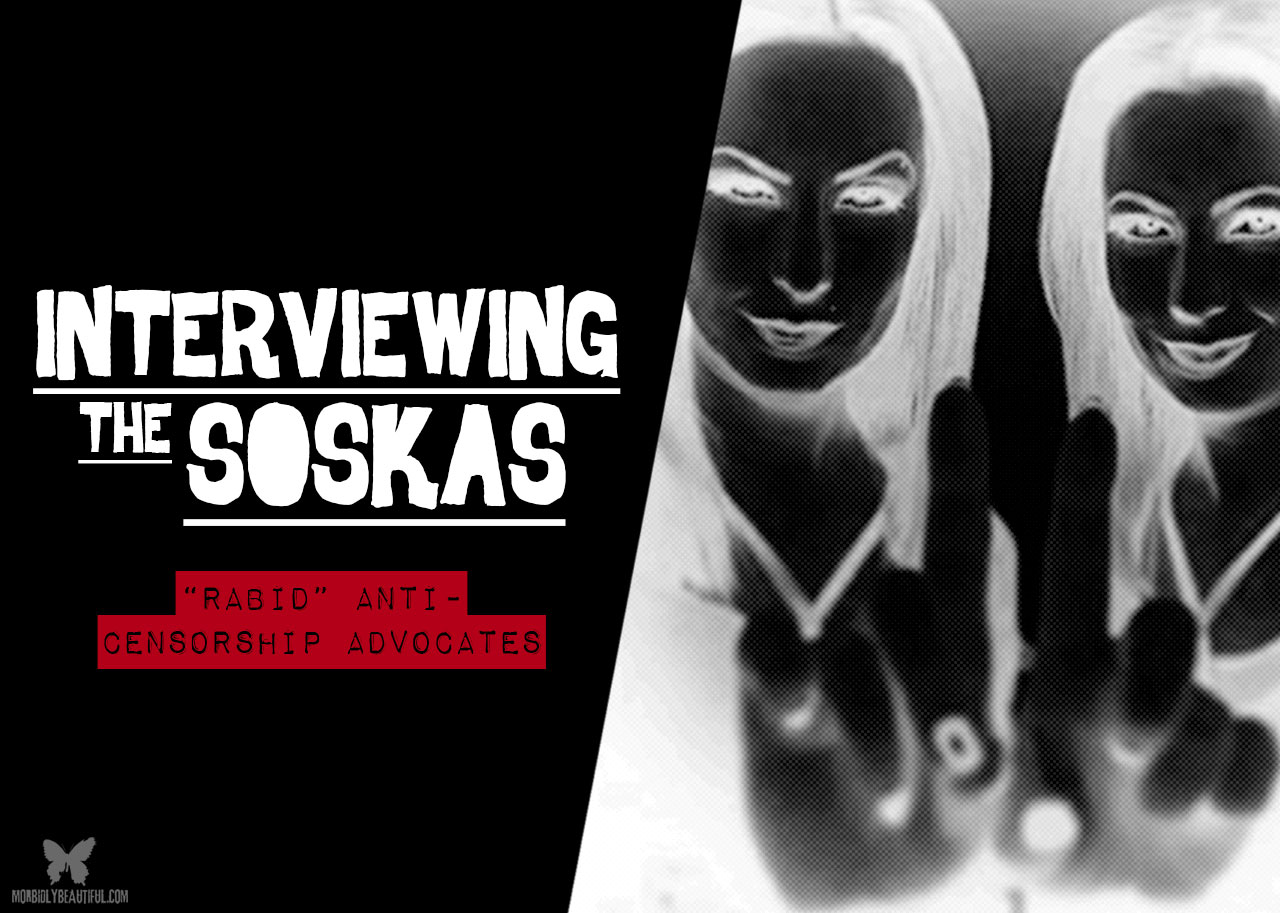
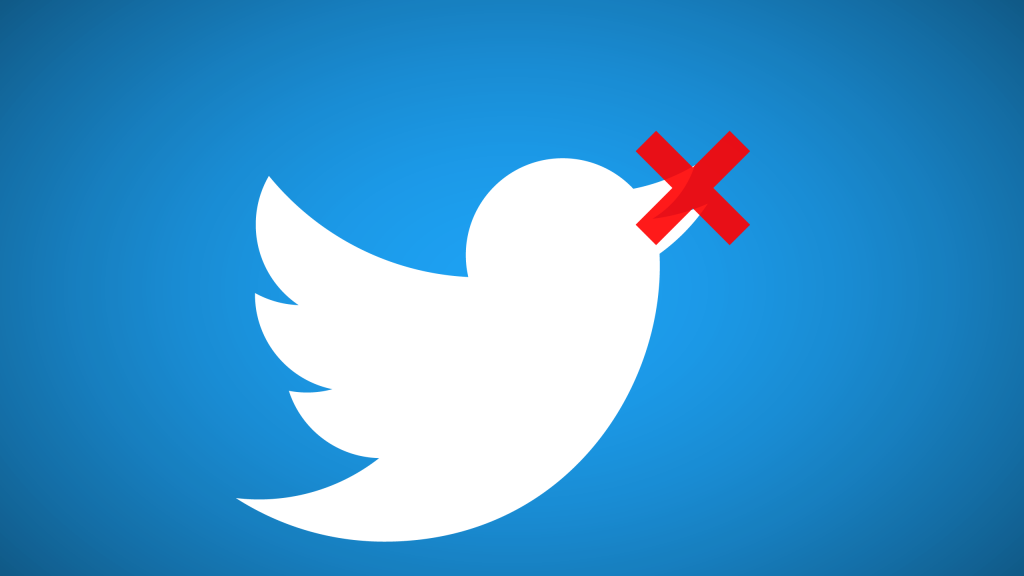



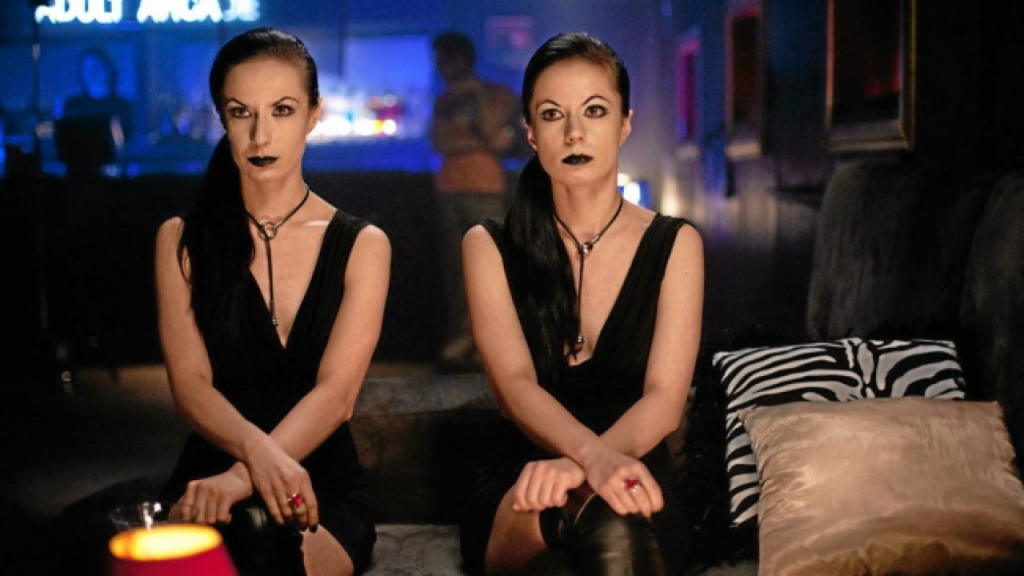
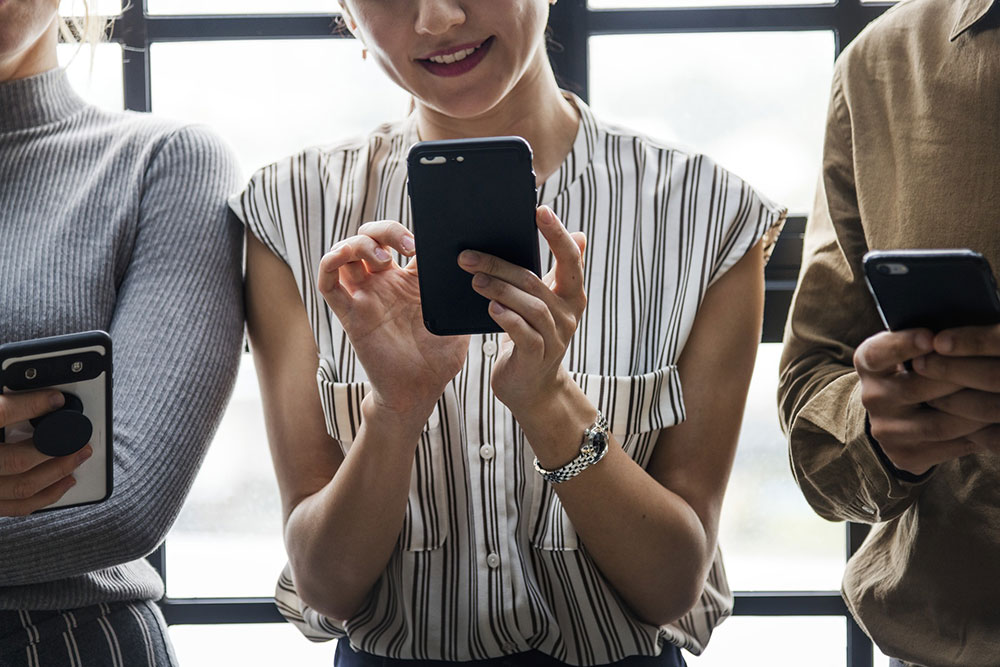

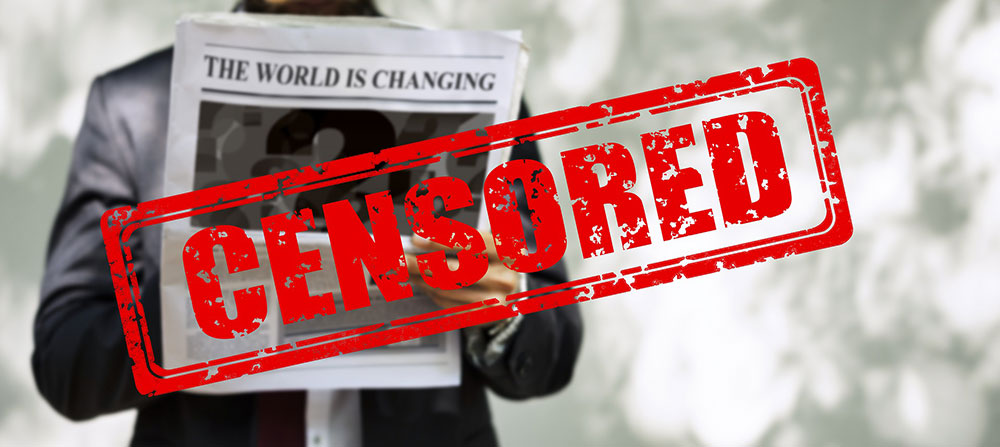

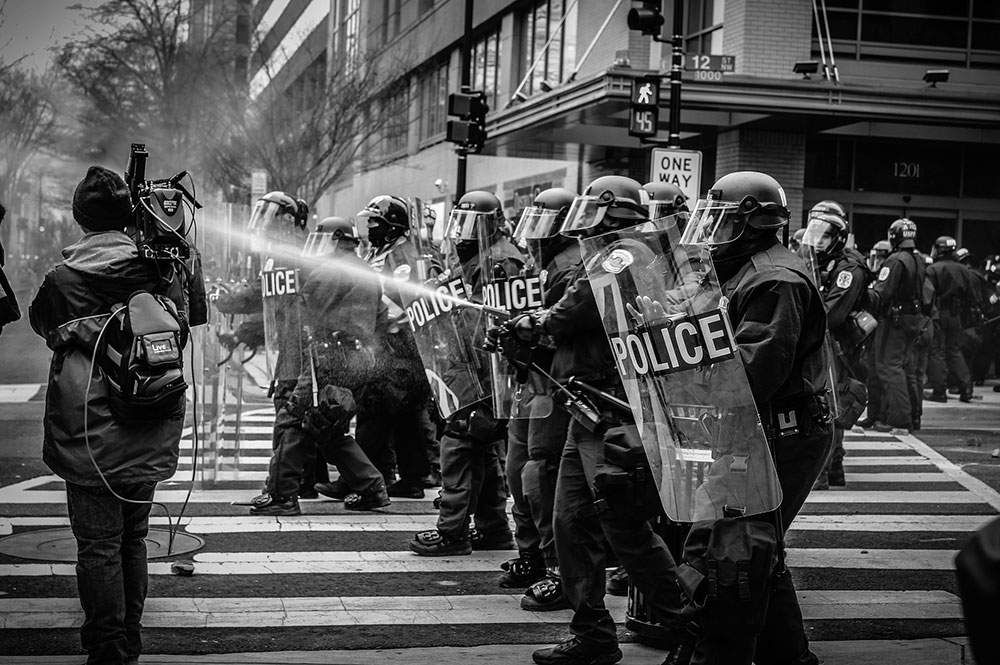

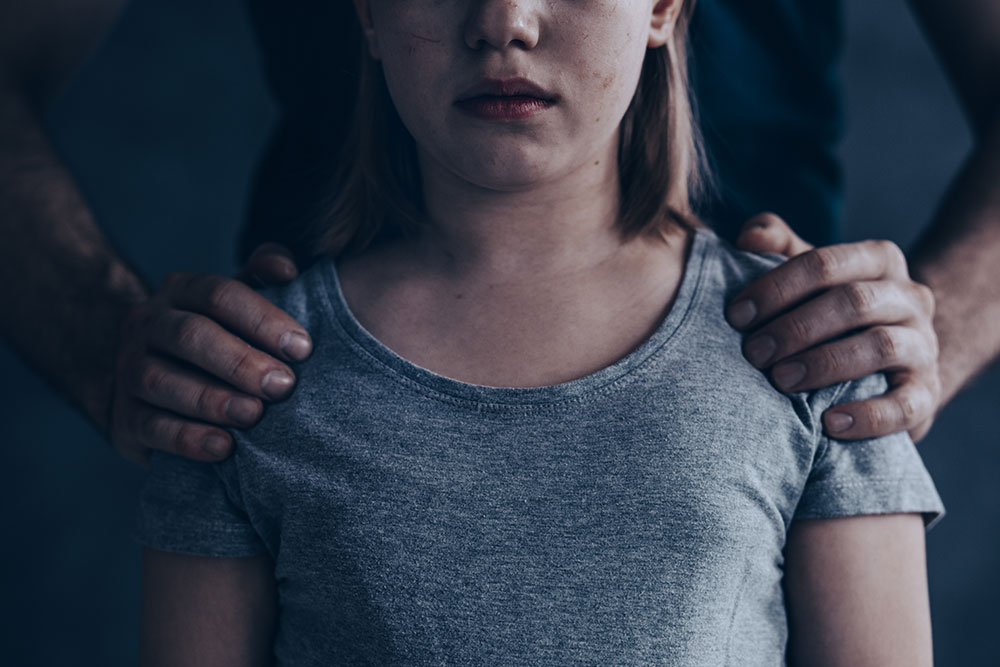
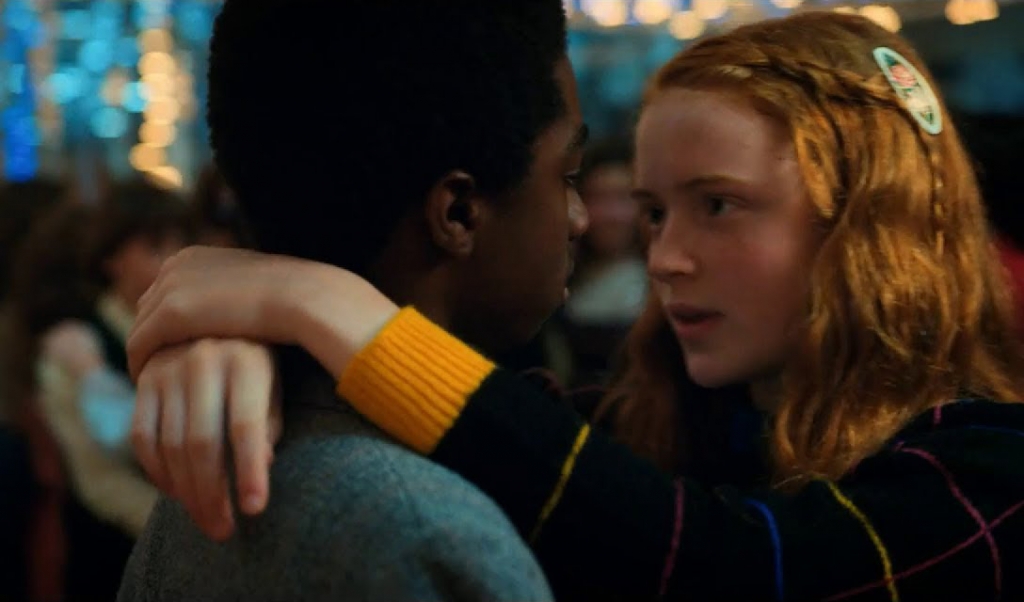
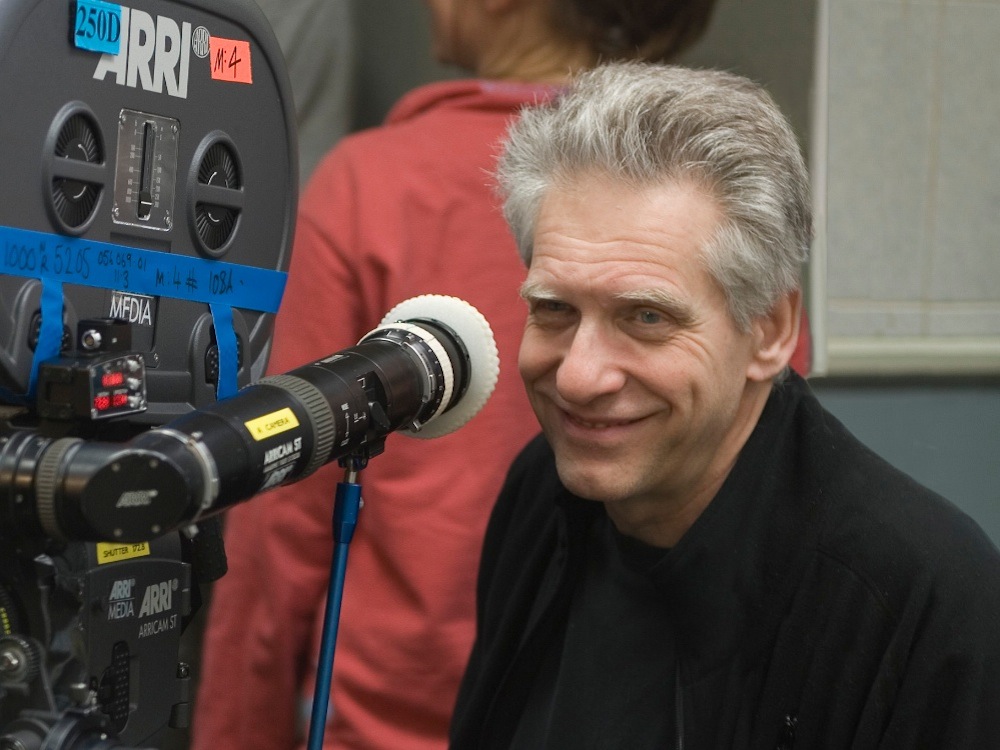
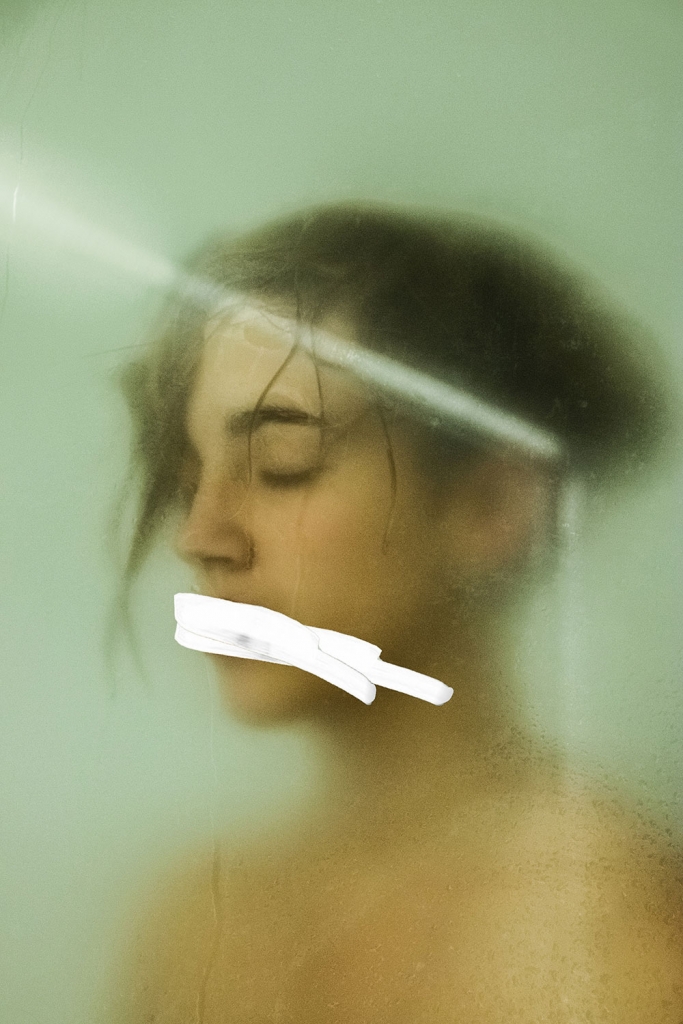

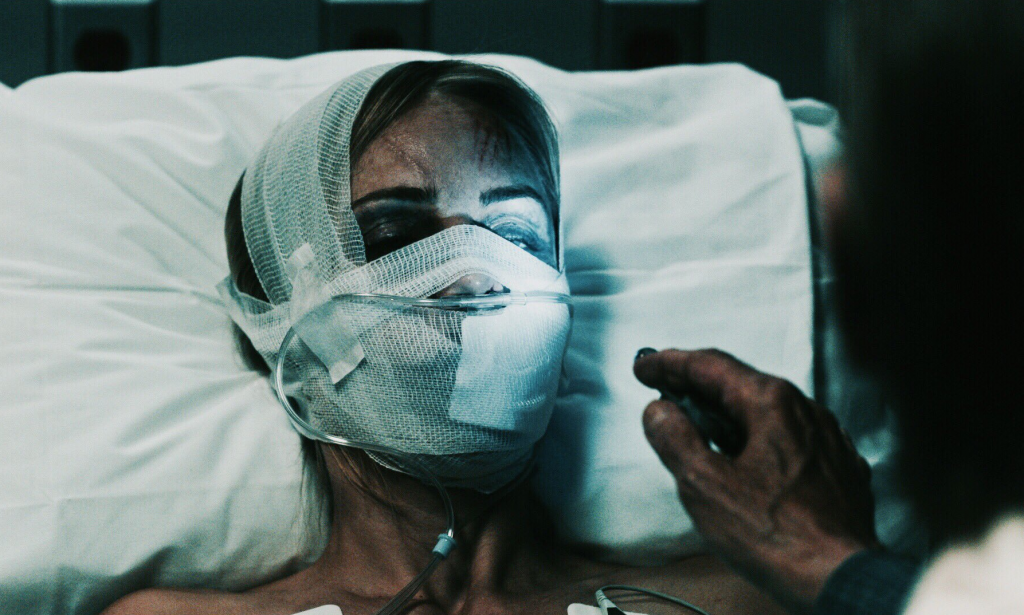
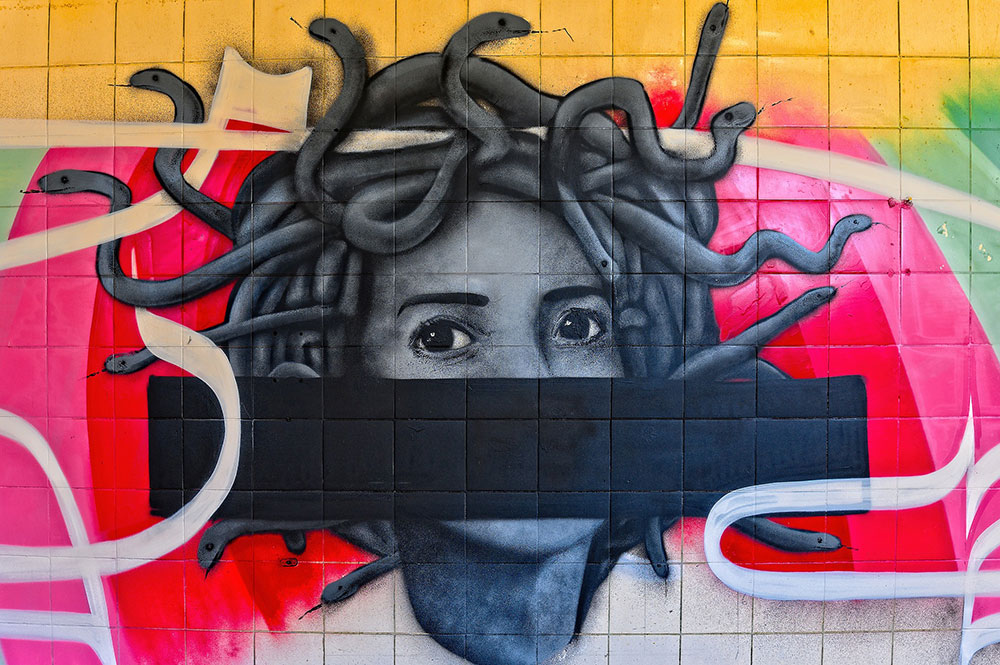
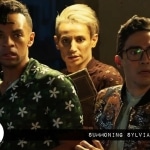
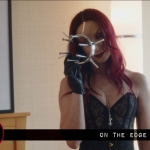
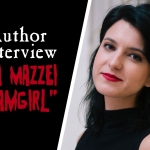
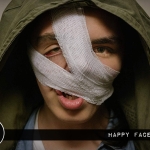




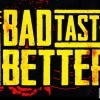



Follow Us!